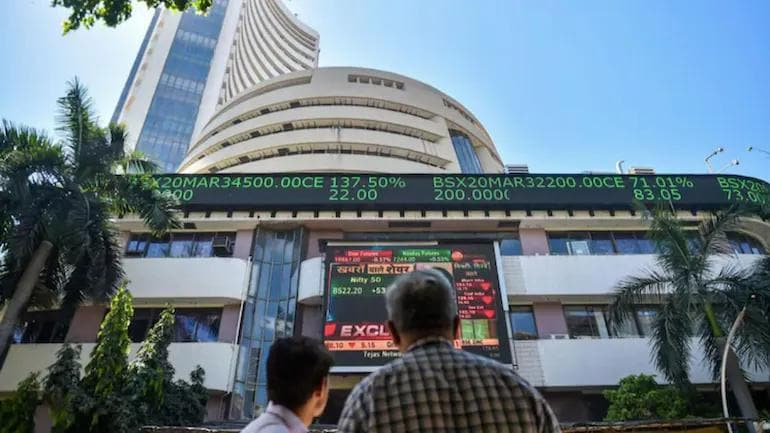Indian share markets witnessed selling pressure during last few months of trade.
Benchmark indices took a U-turn and erased early gains as investors booked profits at higher levels. Barring banking, all sectoral indices ended in red with stocks in the metal sector, energy sector, and IT sector witnessing most of the selling.
Share market indexes Sensex and Nifty dropped around 2 per cent and were set for their worst week since November. Both equity indexes were in the red as investors fretted that fast-paced interest rate hikes to tame surging inflation would slow global economic growth.
Why did Indian markets fall?
Indian markets that opened after a gap of four days fell sharply in line with growing concerns over various developments, including the continuing Russia-Ukraine war. There have also been concerns over the European Union embargo on Russian gas, and some sanctions on Russian crude in the next set of EU sanctions.
As inflation continues to remain a big concern for India and word wide, there are expectations in the market that the US Fed may increase the pace of rate hike; instead of a 25 basis point hike, it could even go for a 50 basis point hike, experts believe. While the rate hikes were expected, a sharp increase could result in faster outflow of funds by foreign portfolio investors, and could keep the emerging economy markets and the domestic equity markets under pressure.
The Chinese Market impact
Another factor that has impacted the market sentiment is the concern over rising Covid-19 cases in China, and the slower than expected pace of growth of the Chinese economy.
While Shanghai has been in lockdown since March, the city reported three deaths on Monday.
Meanwhile, China’s economy grew 4.8 per cent in the first quarter as a Covid resurgence pulled down economic activity. The National Bureau of Statistics too warned of “significant difficulties and challenges” ahead.
what next for Indian Stock markets?
Given the global scenario around geopolitical concerns and inflation, equity markets are likely to remain volatile in the short term. The FII flows may remain unstable and may even witness an outflow in line with an expected increase in the pace of rate hike by the US Fed. Even domestic inflation, which hit 6.95 per cent in March, continues to be a cause of concern for Indian Stock markets. The continued pressure on account of inflation may force the RBI to also go for faster rate hikes.
In its recently released monetary policy statement, the RBI signalled a shift in its focus from reviving growth to mitigating risks posed by inflation. Even as it kept the policy rates unchanged for now, it indicated a possible hike in repo rates going forward. “In the sequence of priorities, we have now put inflation before growth.
